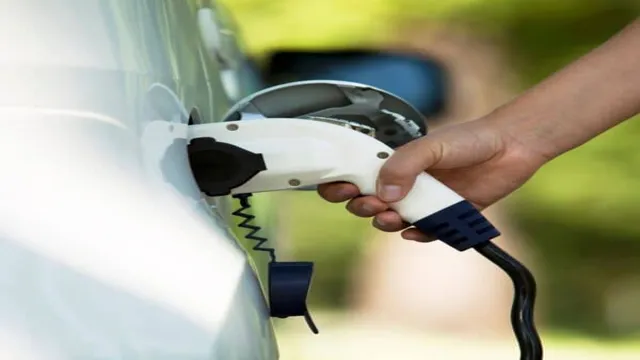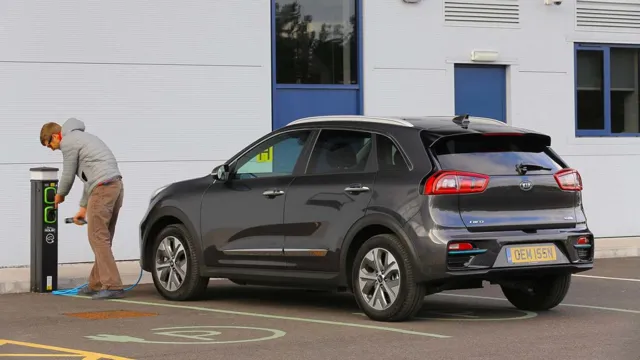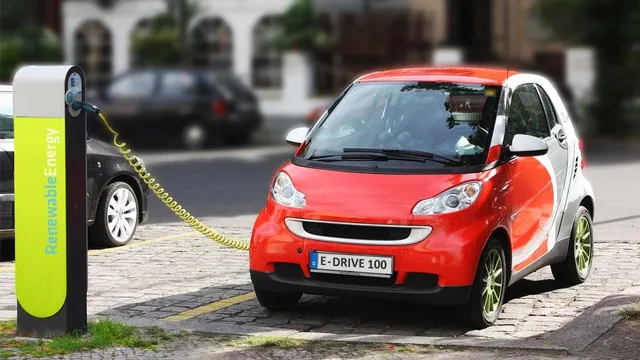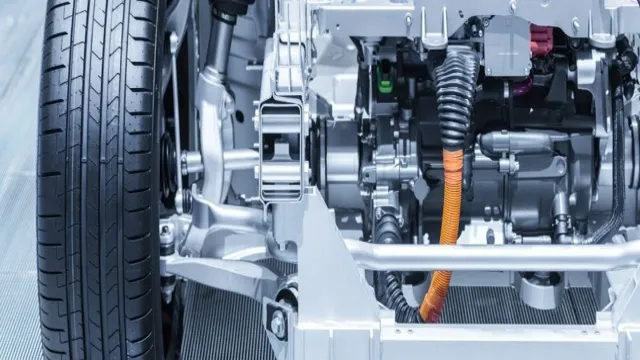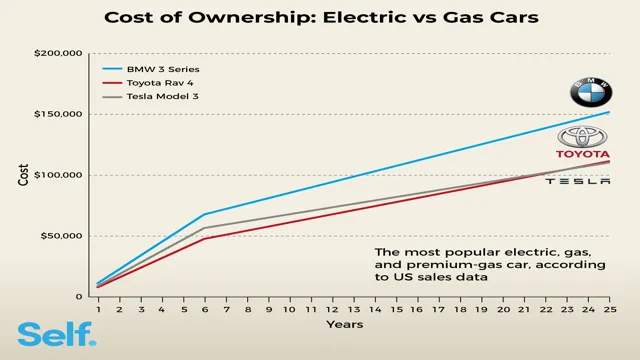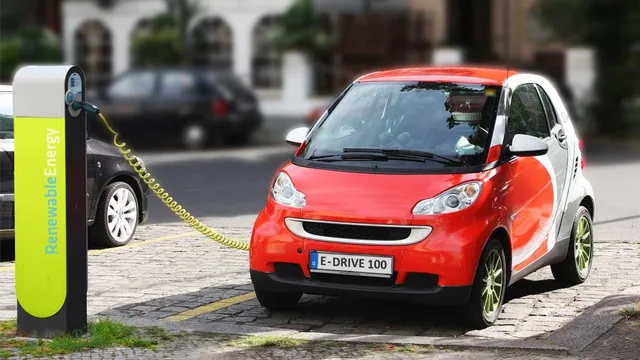Revving up the Savings: The Ultimate Guide to Electric Car Maintenance Costs
Electric cars are increasingly becoming popular among car enthusiasts as people have become more environmentally conscious. However, one of the big drawbacks of owning an electric car is the cost of maintenance. While electric cars provide excellent fuel efficiency and require less maintenance overall, they come with their own set of costs.
In this blog, we will dive into the cost of maintaining electric cars, including factors that contribute to these costs, common maintenance expenses, and tips to help keep these expenses manageable. Whether you are considering purchasing an electric car or already own one, this blog will provide valuable insights into the cost of owning and maintaining an electric vehicle.
Initial Cost vs. Maintenance Cost
When it comes to purchasing an electric car, one of the biggest questions potential buyers have is how much does an electric car cost to maintain? While the initial cost of an electric car can be higher than a traditional gasoline vehicle, the maintenance cost of owning an electric car is generally lower. This is due to the fact that electric cars have fewer moving parts and often require less frequent maintenance. For example, since electric vehicles don’t have an oil or transmission system, oil changes and transmission fluid replacements aren’t necessary.
Additionally, regenerative braking systems in electric cars help extend the life of brake pads and rotors. While electric cars may require occasional battery replacements, the cost is often offset by the savings on routine maintenance. Overall, while the upfront cost of electric cars may be higher, the lower maintenance costs over the life of the vehicle make them a cost-effective and eco-friendly option for car buyers.
Comparing Upfront Costs of Electric vs Gas Cars
When it comes to comparing the upfront costs of electric cars versus gas cars, there are several factors to consider. While electric cars may have a higher initial cost than gas cars, they tend to have lower maintenance costs in the long run. For example, electric cars do not require oil changes or tune-ups, which can save car owners quite a bit of money over time.
On the other hand, gas cars may have a lower initial cost, but they require more frequent maintenance and have higher fuel costs. Additionally, electric cars may be eligible for federal and state tax incentives, which can significantly reduce their upfront cost. Overall, it is important to consider both the initial cost and maintenance costs when deciding between electric and gas cars.

Factors Affecting Maintenance Costs of Electric Cars
When it comes to owning an electric car, initial costs can be daunting, but it’s important to know that the maintenance cost of electric vehicles can be significantly lower than gasoline-powered cars. The reason for this is that electric cars have fewer moving parts, which means less wear and tear, leading to fewer repairs. Additionally, the regenerative braking system in electric cars leads to less frequent brake pad replacements.
While there may be higher initial costs for battery replacement in the long term, electric car owners can save money on regular maintenance expenses, such as oil changes and spark plug replacements. It’s important to weigh the initial cost vs. maintenance cost when considering purchasing an electric car.
By choosing an electric car, you’ll not only save money in the long run but also reduce your carbon footprint and contribute to a cleaner environment.
Cost Breakdown of Electric Car Maintenance
If you’re considering purchasing an electric car, you’ll be happy to know that not only are they environmentally friendly, but they’re also less expensive to maintain than traditional gas-guzzlers. According to a recent study, the average cost of annual maintenance for an electric car is around $350, compared to the $1,200 cost for a gas car. The reason for this significant difference is because electric cars have fewer moving parts, don’t have an oil system that requires regular changes, and their brakes generally last longer due to regenerative braking.
Of course, the costs can vary depending on which electric car you choose and how frequently you use it. Still, overall, electric cars are much cheaper to maintain than their gas counterparts. Plus, with the ever-increasing availability of charging stations, choosing an electric car has never been easier – or more cost-effective.
Tire Replacement and Rotation
Keeping an electric car well-maintained is crucial to ensure its longevity and performance on the road. One of the most common maintenance tasks that electric car owners need to take care of is tire replacement and rotation. The good news is that electric cars typically require less tire maintenance than gas-powered vehicles due to their regenerative braking system and overall efficiency.
However, it’s still essential to have your tires inspected regularly by a professional to ensure that they are wearing evenly and are free from any damage or punctures. The cost of tire replacement and rotation can vary depending on the type of electric car you own and the brand of tires you choose. Still, generally, it ranges from $100 to $300.
While this may seem expensive, it’s important to invest in high-quality tires as they can contribute to better fuel economy, longer tread life, and improved handling, all of which are critical for safe and efficient driving. So, make sure you prioritize tire maintenance to ensure that your electric car performs at its best and stays in top condition for years to come.
Battery Maintenance and Replacement
As electric cars become more popular, it’s important to consider the cost breakdown of maintaining one. One major aspect is the battery, which can last anywhere from 100,000 to 200,000 miles on average. However, when it does need to be replaced, it can cost between $5,500 to $16,000 depending on the make and model of your vehicle.
While this may seem like a high cost, it’s important to consider that electric cars have far fewer moving parts than traditional gas-powered cars, resulting in lower maintenance costs overall. Additionally, there are ways to prolong the life of your battery through proper maintenance and charging habits, such as avoiding letting the battery drain completely and storing it at the appropriate temperature. By taking these steps, you can help ensure that the cost of battery replacement is a much rarer occurrence.
Brake Pad Replacement
As electric cars continue to grow in popularity, it’s important to understand the costs associated with maintenance. One key aspect of maintenance is brake pad replacement, which is equally important for electric vehicles as it is for traditional gas vehicles. However, the cost breakdown for this particular service may vary.
Generally, electric vehicles have more regenerative braking, which means less wear on the traditional brake pads. As a result, the need for replacement may be less frequent, but the cost of the actual pads for an electric vehicle may be higher. It’s important to do your research and compare costs between gas and electric vehicle brake pad replacement to make an informed decision.
Keeping up with regular maintenance and being aware of the costs can help keep your electric vehicle running smoothly for years to come.
Charging Station Maintenance
Electric car maintenance includes several costs that vary depending on the type of vehicle and its components. One of the essential factors to consider is the charging station’s maintenance, which includes the inspection and repair of the charging units and their installation. The cost breakdown of this maintenance varies, with inspection and repair costs ranging from $50 to $200, while installation can cost between $500 and $2,000.
The charging units themselves can also have recurring costs due to software upgrades or replacements, which can range from $200 to $500. However, despite these costs, electric car owners can save money in the long run by relying mostly on home charging stations, which can reduce overall charging and maintenance expenses. Furthermore, regular maintenance and inspections of both the car and charging stations are crucial to ensure maximum efficiency and performance and prevent costly repairs.
Savings with Electric Cars
Electric cars are known to be cheaper to maintain than their gas-powered counterparts. This is because they have fewer moving parts and require less maintenance overall. On average, it costs about $1,000 per year to maintain a gas-powered vehicle, while electric cars only cost around $400 per year.
This difference in cost is due to the fact that electric cars don’t require oil changes, spark plug replacements, or other routine maintenance tasks that gas cars need. Furthermore, electric cars have regenerative braking systems, which means that the brakes last longer than those in regular gas-powered vehicles. Additionally, electric cars have lower fuel costs, making them a more economical choice in the long run.
Overall, if you’re looking for a car that is cheaper to maintain, an electric car is a great choice.
Lower Fuel Costs
Electric cars offer significant savings in fuel costs. With gasoline prices continuously fluctuating, electric vehicles (EVs) provide a more stable and predictable way to manage transportation expenses. The cost of charging an EV is generally much lower than that of filling up a gasoline vehicle.
Furthermore, electric cars require less maintenance, which can reduce long-term costs. For example, EVs do not have oil changes, spark plug replacements, or exhaust system repairs. Although the initial cost of purchasing an electric car may be higher, the savings in fuel and maintenance costs over time can be significant.
Additionally, many states offer rebates and incentives to encourage the use of electric vehicles. In short, electric cars not only save money, but they also provide a more sustainable and eco-friendly way to get around. So, if you are looking to lower your fuel costs and reduce your carbon footprint, electric cars are an excellent choice.
Tax Credits and Incentives
One of the significant benefits of owning an electric car, besides being eco-friendly, is the potential for savings through tax credits and incentives. These incentives vary depending on the state and federal policies, but they can add up to thousands of dollars in savings. For instance, the federal government provides a tax credit of up to $7,500 for new electric vehicles (EVs).
Many states also offer additional incentives, such as income tax credits, rebates, and exemptions on sales tax and registration fees. Some utility companies also provide discounts on charging or installation of charging stations. With these tax credits and incentives in mind, owning an EV might seem like a more affordable option than you thought.
These benefits not only help to offset the cost difference between EVs and traditional vehicles, but also contribute to a cleaner environment. So, why not save money and do your part for the planet at the same time?
Conclusion
In the world of cars, flashiness and speed remain king, but the allure of electric vehicles is growing stronger by the day. Now, the burning question on everyone’s mind is ‘how much does an electric car cost to maintain?’ The answer may surprise you! With fewer moving parts and less need for routine maintenance to keep the engine cool or replacing oil filters, electric vehicles can be cheaper to keep running than traditional gas-powered cars. So if you’re looking for a cooler ride with lower costs, it’s high time to make the switch to an electric car today!”
FAQs
What is the average cost of maintenance for an electric car?
The average cost of maintenance for an electric car is significantly lower than for a gasoline car, ranging from $300 to $400 per year.
What types of maintenance are necessary for an electric car?
Electric cars require regular tire rotations, brake inspections and fluid replacements, just like gasoline cars. However, electric cars don’t require oil changes or air filter replacements.
How long do batteries last in an electric car?
The battery life in an electric car depends on many factors, such as the manufacturer, climate, and usage. Generally, most manufacturers provide an 8-year warranty for their batteries, which can last up to 10 to 20 years with proper maintenance.
Are electric cars cheaper to maintain than gasoline cars?
Yes, electric cars are cheaper to maintain than gasoline cars. This is because they don’t have many of the complex systems and parts found in gasoline cars, don’t require oil changes or air filter replacements, and have regenerative braking systems that reduce wear and tear on brakes.
